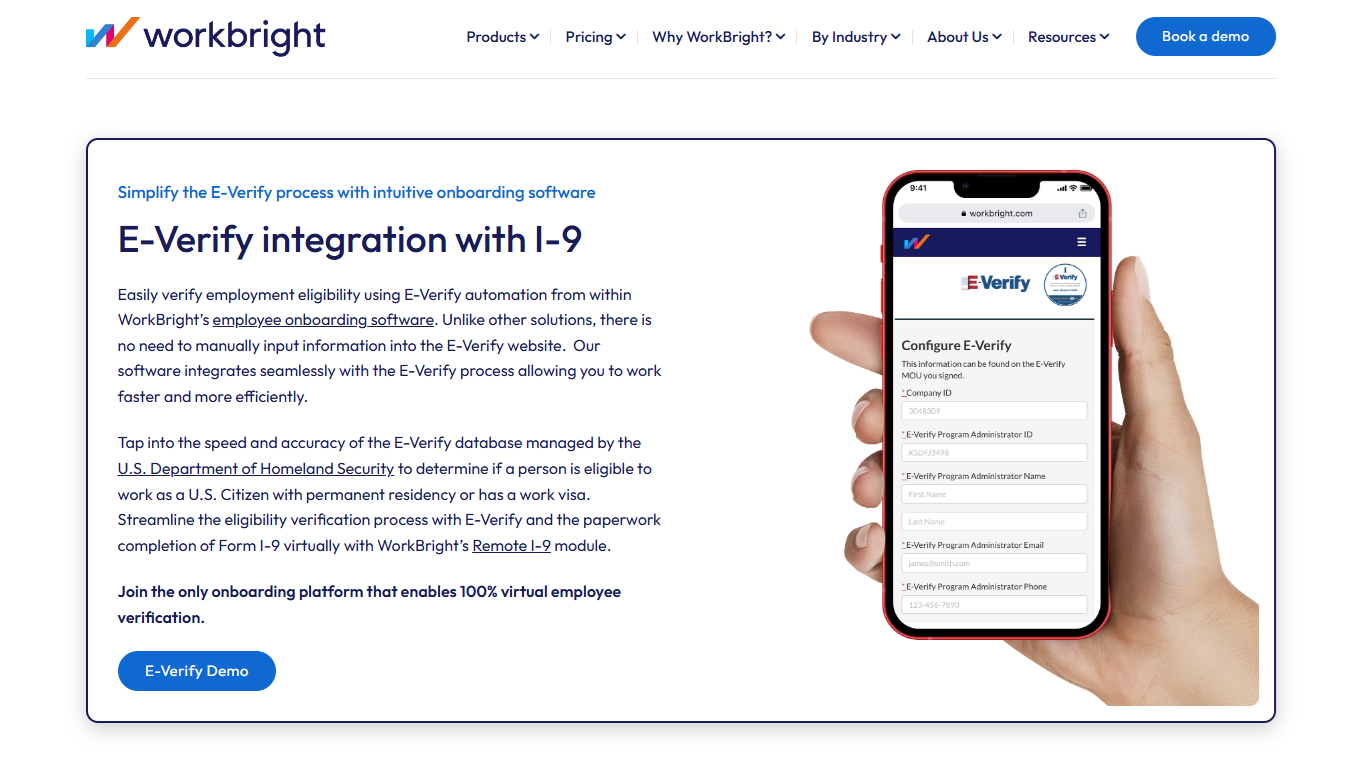The increasing reliance on automation in the workplace, particularly in areas like employment eligibility verification, has raised important ethical considerations. While tools like Verify I-9 software streamline processes and enhance accuracy, they also present challenges that require careful management to ensure ethical practices. This article explores the balance between automation and ethical practices in using E-Verify software, emphasizing the importance of maintaining fairness, privacy, and compliance.
The Role of Automation in I-9 Verification
Verify I-9 software automates the process of verifying the employment eligibility of new hires. Key benefits include:
- Efficiency: Automates data entry and verification, reducing the time and resources required.
- Accuracy: Minimizes human error by validating information against federal databases.
- Compliance: Ensures adherence to legal requirements through built-in compliance checks and automated alerts.
Despite these advantages, ethical considerations must guide the implementation and use of such software.
Ethical Considerations in I-9 Verification Automation
Privacy and Data Security
Handling sensitive personal information, such as Social Security numbers and immigration documents, necessitates stringent data security measures. Implementing robust data security protocols to protect personal information is an ethical practice that includes encryption, access controls, and regular security audits to prevent unauthorized access and data breaches. Use Verify I-9 software that complies with industry standards for data protection, such as GDPR and CCPA. Ensure that all data is encrypted both in transit and at rest, and conduct regular security assessments to identify and mitigate vulnerabilities.
Transparency and Informed Consent
Employees should be fully informed about how their personal information will be used and have the opportunity to consent to its use. Providing clear and transparent communication to employees regarding the data collection and verification process and obtaining explicit consent before using their information in the Verify I-9 software is an ethical practice. Develop comprehensive privacy policies that explain how data will be collected, used, and protected. Ensure that employees receive this information during the onboarding process and confirm their understanding and consent.
Non-Discrimination
Automation should not lead to discriminatory practices, such as biased decision-making or unequal treatment based on nationality, race, or immigration status. Ensuring that Verify I-9 software is used in a manner that upholds equal treatment for all employees, regardless of
their background, is an ethical practice. Regularly review and audit the use of Verify I-9 software to ensure it complies with non-discrimination laws, and train HR personnel to recognize and prevent discriminatory practices in the verification process.
Human Oversight and Accountability
While automation enhances efficiency, human oversight is necessary to manage exceptions and ensure ethical decision-making. Maintaining human oversight to review flagged issues, handle exceptions, and provide context for final decisions is an ethical practice. Designate trained HR personnel to oversee the verification process, review automated results, and address any discrepancies or concerns, ensuring that these individuals are accountable for maintaining ethical standards.
Accuracy and Error Management
Automated systems can still produce errors, such as false positives or negatives, which need to be addressed promptly and fairly. Implementing procedures to identify, correct, and communicate errors in a timely manner, ensuring that affected employees are treated fairly, is an ethical practice. Use Verify I-9 software that includes robust error detection and correction features. Establish clear protocols for addressing errors, including notifying employees and providing support to resolve issues.
Continuous Improvement and Feedback
Ongoing evaluation and improvement of the verification process are essential to maintaining ethical standards. Regularly assessing and updating the Verify I-9 software and related processes based on feedback from employees and audit findings is an ethical practice. Set up a continuous improvement cycle that includes collecting feedback from users, conducting regular audits, and making necessary adjustments to policies and procedures. Engage employees in the evaluation process to ensure their concerns are addressed.
Best Practices for Ethical Use of Verify I-9 Software
Develop Comprehensive Training Programs
- Practice: Ensure that all HR personnel and managers are trained on the ethical use of Verify I-9 software.
- Implementation: Provide regular training sessions that cover data privacy, non-discrimination, and error management. Include case studies and scenarios to help staff understand and apply ethical principles in their work.
Implement Strong Governance Policies
- Practice: Establish governance policies that outline the ethical use of automation in I-9 verification.
- Implementation: Develop policies that address data security, privacy, and non-discrimination. Ensure these policies are communicated to all relevant stakeholders and enforced through regular monitoring and audits.
Engage Stakeholders in Policy Development
- Practice: Involve a diverse group of stakeholders in the development and review of policies related to Verify I-9 software.
- Implementation: Create a committee that includes HR personnel, legal experts, IT professionals, and employee representatives to ensure that policies are comprehensive and reflect diverse perspectives.
Leverage Technology for Ethical Decision-Making
- Practice: Use technology to support, not replace, human judgment in ethical decision-making.
- Implementation: Ensure that Verify I-9 software includes features that facilitate human oversight, such as dashboards for reviewing flagged cases and tools for documenting decisions.
Promote a Culture of Ethical Awareness
- Practice: Foster a workplace culture that prioritizes ethical practices in all aspects of HR operations.
- Implementation: Encourage open discussions about ethical challenges and provide forums for employees to raise concerns. Recognize and reward ethical behavior within the organization.
Conclusion
Balancing automation with ethical practices in the use of Verify I-9 software is essential for ensuring compliance, protecting employee rights, and maintaining organizational integrity. By implementing strong data security measures, ensuring transparency and informed consent, upholding non-discrimination, maintaining human oversight, managing errors effectively, and continuously improving processes, organizations can leverage the benefits of automation while adhering to ethical standards. Embracing these practices fosters a fair and compliant workplace, ultimately contributing to the organization’s long-term success.



































